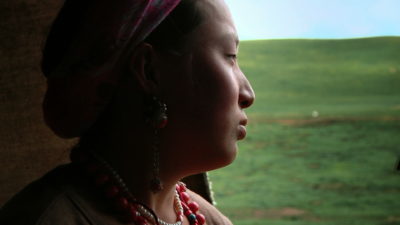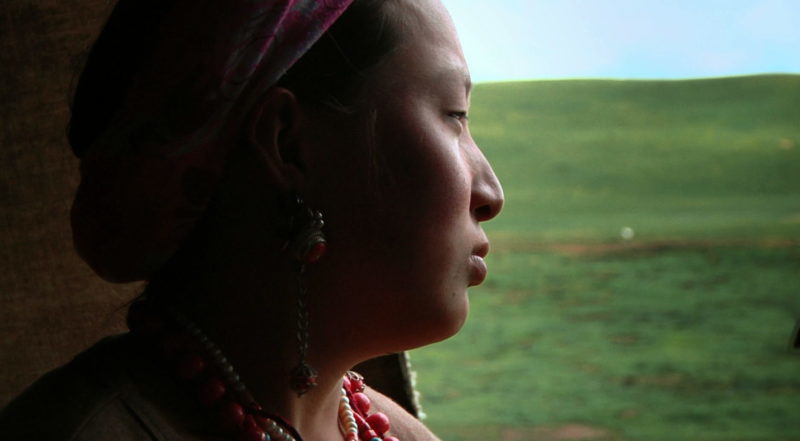REVIEW: ‘Drokpa’ depicts life of nomadic families in Tibet

Drokpa, the new documentary from filmmaker Yan Chun Su that’s playing the Margaret Mead Film Festival, follows nomadic families as they strive to earn a living in the increasingly harsh terrain of the Tibetan plateau. Their life is one of constant moving and endless work, but it’s also one filled with happiness, well-earned struggle and a close connection to the land.
Su’s documentary is simplistic in its presentation. It’s never showy or over the top in its depictions; in fact, there is no music or talking heads to contextualize the scenes. Instead, it feels like the finished product is an edited version of reality, and that’s a great compliment for a film documenting such a unique lifestyle and compelling traditions.
The community at the center of the film drives their supplies and livelihood by tractor to a verdant countryside where the green grass spreads out before them. In the distance is a desert that each year is creeping closer to the nomadic lands, and that’s a problem because these communities rely on the milky gifts of their yak herds. If the yaks are not feeding on the grass, and free from disease, then these families suffer — sometimes tremendously so.
The level of exertion required to be a nomad in Tibet is something to behold. The strength of both body and mind needs to be intact. These communities erect tents, build stoves out of yak dung, collect milk, fertilize the land, herd the animals, make blankets and clothes, and carry on traditions passed down from generation to generation. They do not waste one item from their sheep or yaks. Whether it’s dung, milk or fluffy coats, the animals are their means of subsistence.
As the documentary progresses, it becomes obvious that this unique way of life is under multiple threats. There’s the encroaching desert, which the nomads try to stop in its tracks, but there’s also the calls of modernity. The parents depicted in the film send their children to school, which is the code word for the outside, non-nomadic world. If they make it in school and receive a proper education, they might move away from the Tibetan plateau. If they don’t make it in school, they always have a spot with the family in the tents and the fields.
Su has done a great service to the viewers by capturing these hard-working, lesson-giving communities in one of the highest geographies of the world. It’s important for the audience to learn from their dedication to the environment, their work ethic, their focus on family and their struggles with modernism, gender equality and family dynamics.
After spending 79 minutes with these communities, one sees some definite trends start to emerge. The women, as one person says in the film, work nonstop and often much more than the men in their life. The men are typically the herders, and the women take care of most every other role involving the animals, the children, the tent, the cooking and the community. They are strong and inspiring, carving out their identities through their raw hands and endless love.
Tamku is one person who the camera follows over the course of the year. She’s an 18-year-old single mother who is recently divorced. There’s also Dhongya, a man who is at home tending to the animals in the fields and remembering the good old days.
Much like the nomads themselves, the film has a wonderful fluidity and movement to it. Days pass, responsibilities are taken up and eventually the community takes down the tent and moves along. They wrap up their intricately woven fabrics. They tie their ropes. They pack away the satellite television in a briefcase. They head over the next hill and into an uncertain future.
By John Soltes / Publisher / John@HollywoodSoapbox.com
Drokpa (2016) will playing the Margaret Mead Film Festival at the American Museum of Natural History in New York City. Director Yan Chun Su will be in attendance at the Friday, Oct. 14 screening at 9:30 p.m. Rating: 


 Click here for more information.
Click here for more information.

